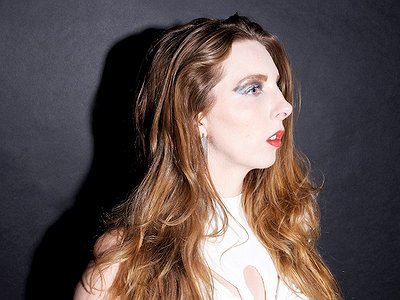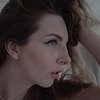Part 2
Take us through a day in your life, from a possible morning routine through to your work, please.
Since I have a separate career from music, most of my creative work happens on the weekends. I make a point to get out in nature and go for a strenuous hike every weekend, if not more frequently. I like to find trails that are less crowded, which can be kind of difficult to find in Los Angeles proper, so I will drive an hour or more to get to these places. I have found some really special places that I love to revisit to just center myself.
So typically, I’ll head out for a hike mid-morning with my dog, sometimes with friends, but usually alone. I like to find a place on my hike to just sit in silence and meditate for half an hour or so. I’ll also sing while I’m out hiking if I’m alone and nobody is around. I find this to be a very healing activity. Once I’m done hiking, I’ll get a late lunch and a protein smoothie and head home, where I’ll shower and rest for a short while.
I’ll typically work on music or video art for a few hours at that point, take a break to give my dog her evening walk, and cook dinner for myself. I’ll watch an episode of TV or a movie, then get back to working on music for another hour and a half. I sleep fairly early, around 10:30 PM every night. And that’s a pretty typical day for my creative practice!
Could you describe your creative process on the basis of a piece, live performance or album that's particularly dear to you, please?
In regards to my latest album, Fractured Whole, I composed this music over the course of about a year and a half. The only source material on the album was my voice, which was an intentional limitation I placed on myself to avoid getting overwhelmed by the infinite possibilities that computer music affords.
Typically, I would come up with vocal riffs while I was on walks or hikes, record them as voice memos in my phone, and then come back and lay some rough takes down. I found a number of plugins and tools that yielded especially interesting results from my voice, so I’d play around with these until something sounded uncanny, bizarre, or unusual. These recordings would often become the central points around which I’d write the songs, such as in “Precipice,” where I created these sweeping, glitchy, rhythmic sections through this experimentation process.
I’d add layers and build from there, often thinking of the tracks as having different movements, like in symphonic music. At this point, I’d get feedback from a trusted producer friend or my producer meetup group, who helped me quite a bit during the composition process. I’d then consider the feedback, refine, tweak, and play it for them again until I was satisfied with the result.
Listening can be both a solitary and a communal activity. Likewise, creating music can be private or collaborative. Can you talk about your preferences in this regard and how these constellations influence creative results?
I love both solitary and collaborative modes of listening and creation, and they are both crucial to the creative process. Even if I’m composing on my own (as I most often am), I’m still engaging other people who I trust throughout the process, asking for feedback and input along the way.
Though I’m definitely more of a solitary and introverted person, I wouldn’t want to make art completely in a self-isolated vacuum.
How do your work and your creativity relate to the world and what is the role of music in society?
I think the role of any art form is to communicate and engage in dialogue with others; to impress upon individuals that they do share core experiences, thoughts and feelings with humanity at large. When you truly connect to someone’s art, it is a means, I believe, of reaching out into the void to find there’s someone else there.
We have such a tendency in this culture to feel the need to perform this hyper individualistic, self-sufficient role that is divorced from the reality that we are a social species. We require one another to thrive. I think good music reminds you of this, and at best, can encourage you to seek out more of this interdependency where you may lack it.
Art can be a way of dealing with the big topics in life: Life, loss, death, love, pain, and many more. In which way and on which occasions has music – both your own or that of others - contributed to your understanding of these questions?
My friend, Norm Chambers, passed away late last year. He was a prolific musician and graphic designer, and an incredibly gentle and genuine spirit.
A few months after his passing, I had a dream where his synths were set up in a shop, alongside cassettes of his music, and one of his closest friends was there to usher people in, encouraging them to play the synths on the patches he’d left behind. I greeted our friend and he gave me a huge hug.
This dream meant so much to me, as I couldn’t be present for his memorial service in Seattle. It brought me immense comfort in my time of grief. I understood that Norm’s music would always survive him, and he would continue to impact and help people through their own pain, as it did for me.
I played one of his records, Sensory Margin, while my dog was put to sleep in 2021, as it was one of her favorites.
It made me feel less alone during such a painful experience, and also made me feel even more connected to him after his passing when I read of all the other people who had been affected by his music.
How do you see the connection between music and science and what can these two fields reveal about each other?
I don’t often think of music in these terms, as it’s much more of an emotional experience for me. But on the engineering, mixing, and mastering side of things (which still can feel very mysterious to me), I see this relationship at the forefront.
Creativity can reach many different corners of our lives. Do you feel as though writing or performing a piece of music is inherently different from something like making a great cup of coffee? What do you express through music that you couldn't or wouldn't in more 'mundane' tasks?
Performing and writing music has this trancelike effect on me, where I lose all sense of time and won’t notice things like pain in my body for many hours. It is similar to mundane rituals in that it is something that feels tied to muscle memory, but differs from them in that I’m tapping into some sort of id-like, primal emotional energy when I’m creating, singing, and performing.
Music is vibration in the air, captured by our ear drums. From your perspective as a creator and listener, do you have an explanation how it able to transmit such diverse and potentially deep messages?
Certain frequencies transmit feelings of unease or calm just by nature of the way they resonate our internal organs.
I like the idea of playing with unsettling frequencies alongside more calming ones. I think this is ideal place for consideration of the incongruousness that is the human experience.






